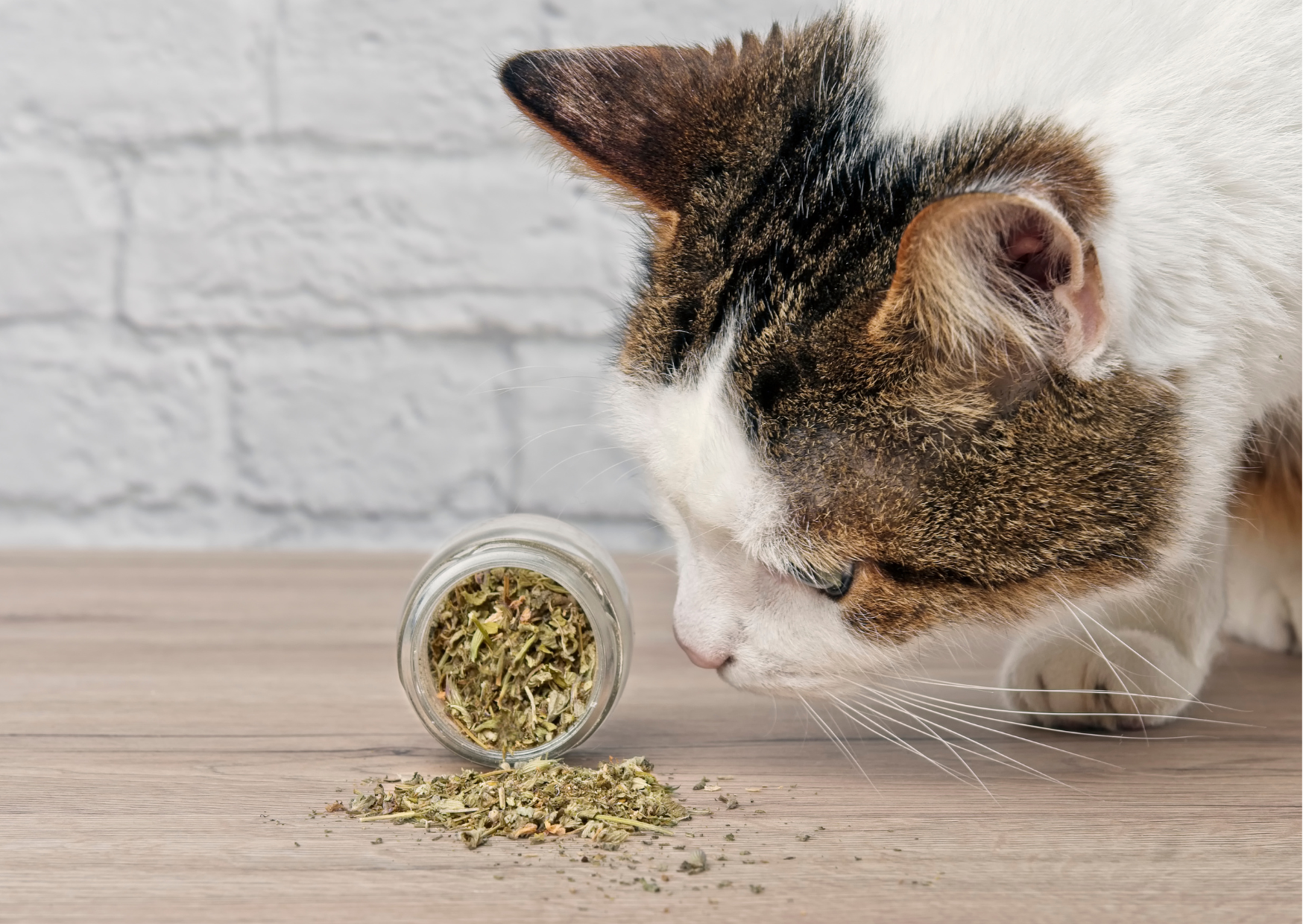Next working day delivery with Royal Mail Tracked 24
Catnip and other Herbs for your Cat

Catnip and other Herbs for your Cat
Note: this article contains third-party links to our pet website Real Pet Store.
Catnip, also known as Nepeta cataria, has a fascinating effect on many cats. When cats come into contact with catnip, they often exhibit behaviors such as meowing, flipping, rolling, rubbing, and even zoning out. The primary compound responsible for these reactions is called nepetalactone.
When cats smell catnip, nepetalactone binds to receptors in their nasal tissue, sending signals to the brain that trigger various behaviors. These can range from hyperactivity and playfulness to relaxation and affection. Some cats might even become more aggressive if approached while they’re enjoying catnip.
The effects of catnip are temporary, usually lasting about 10 to 30 minutes.
Interestingly, not all cats are affected by catnip. About 30% of cats don’t react to it at all, likely due to genetic factors. The ability to appreciate the herb is genetically programmed, with slightly more cats in the fan club than not.
Kittens under the age of 3 months do not react to catnip, and even in those cats who truly adore the "high", catnip is nonaddictive and harmless.
Cat Gardens
Valerian is another herb that makes cats happy. Valerian and catnip can be grown together as part of a "cat garden". Many cats love to graze, so indulging them by planting safe greens in your garden for them to nibble and enjoy is a great idea.
Cats also love to graze on other edible plants, such as alfalfa, rye and wheat, and herbs like parsley and thyme.
Many people who complain about cats visiting their gardens, for whatever purpose, particularly those with overgrown gardens, often fail to realise that there might be common herbs or plants growing that may attract a cat, for the reasons above.
Cat grass
Cat grass, which includes varieties like wheatgrass, oat grass, rye grass, and barley grass, offers several benefits for cats.
Cat grass adds roughage and fibre to your cat’s diet, which can help their digestive system function better. It can reduce issues like diarrhea, constipation, and hairballs. Cat grasses can be rich in essential nutrients, including vitamins A and D, folic acid, and chlorophyll. These nutrients support overall health, including oxygen transport in the blood and healing processes.
Many cats enjoy nibbling on grass, which can be a natural behavior for them. It can also help settle an upset stomach and reduce the amount of fur in their digestive system. While not all cats are interested in cat grass it can be a safe and healthy treat for those who are.
Do you have a cat? If so, how do they react to catnip, grasses and other herbs? Post a comment below!
To browse Real Pet Store's catnip product range for cats please click here.
To browse Real Pet Store's range of cat grass online please click here.
Photo credit(s): Canva Pro Licence











